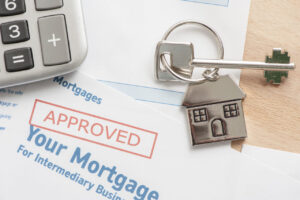Photo by NeONBRAND on Unsplash
Are you contemplating refinancing your mortgage, but aren’t sure if it’s the right move? Some common reasons people do a refinance include:
Read MorePhoto by NeONBRAND on Unsplash
Are you contemplating refinancing your mortgage, but aren’t sure if it’s the right move? Some common reasons people do a refinance include:
Read MoreSHOW NOTES:
In today’s episode, John and Beth talk about home finances. Which includes more than just the aspects of buying or selling a home. We discuss the financial nuances of home buying, but we also talk about the importance of tracking and managing ongoing finances as a homeowner. We break down common homeowner’s expenses, how to prepare for them and save money, why you should keep track of the value of your home, and ultimately, how to make smarter financial decisions related to your home.
IN THIS EPISODE:
● [02:06] Home finances related to buying a home
● [03:25] Closing costs and down payments
● [04:10] Understanding and tracking your investment
● [11:23] Home equity assets
● [12:49] Home inventory assets
● [14:35] Regular ongoing home expenses
● [18:59] How do you budget for ongoing home expenses?
● [23:23] Maintenance/repair expense
● [25:33] Hiring people for infrequent maintenance
● [28:40] How do you budget for these expenses
● [30:06] Home improvement expenses
KEY TAKEAWAYS:
● Your mortgage amount, down payment, and closing costs are all things to keep in mind when buying a home.
● Having title insurance is important because you want to protect the property that you’re buying, and title insurance does do that. It helps identify the long history of where the property was once purchased.
● Action Step: After you buy your home and move in, track how your estimated value of your home is increasing.
● Calculating your home equity is a simple equation. It’s the estimated value of your home minus the remaining balance on your mortgage. That’s the percentage that you own.
● The two most important ways that you can increase your equity is you live in a hot neighborhood and the value is going up and you’re paying off your mortgage.
● Regular home expenses include mortgage and insurance, utilities, service providers, lawn care, maintenance contractors, property taxes.
● It’s important to track what the market thinks your home is worth and what your county thinks your home is worth, which is how your property taxes are assessed based on.
● Action Step: Commit to creating a budget for home expenses (regular, annual, and irregular), track the actuals and then use that to make better smarter decisions in the future.
● Your home maintenance may be 1 to 4% of the total purchase price of your home. 1% if your house is less than five years old but once your house gets between five and 15 years old, that percentage increases to 2%.
LINKS MENTIONED:
Need to refinance? Your lender may require a home appraisal before approving any changes in financing.
As a homeowner, you’ll obviously want to get the highest appraisal you can to ensure that you’re able to secure the amount of financing you need.
While you have no direct control over what the market says your home is worth, it is within your power to do everything you can to get the best appraisal possible.
Read MoreIt’s important to ensure your home’s value comes out as high as possible in an appraisal. After all, most of the offers you’ll receive require the buyer to get financing through a mortgage lender.
Essentially, the higher the appraised value of your home, the more seamless the home selling process will be.
Taking the time to prepare your home for an appraisal is your best chance of increasing its appraised value. Here are nine tips to help.
Read More
You wouldn’t purchase a brand new car without test driving it, so why would you choose a mortgage lender without shopping around first? Choosing a lender is part of the home buying process, and purchasing a new home can be overwhelming, especially if it’s your first time. There’s a lot to think about and do! Here’s what you should consider when choosing a lender.